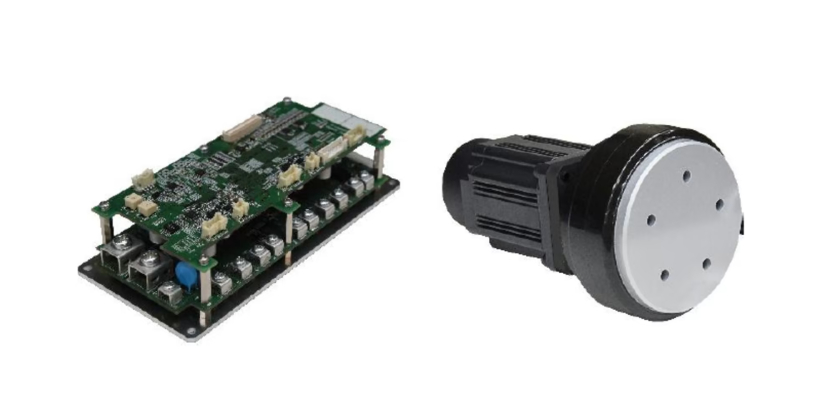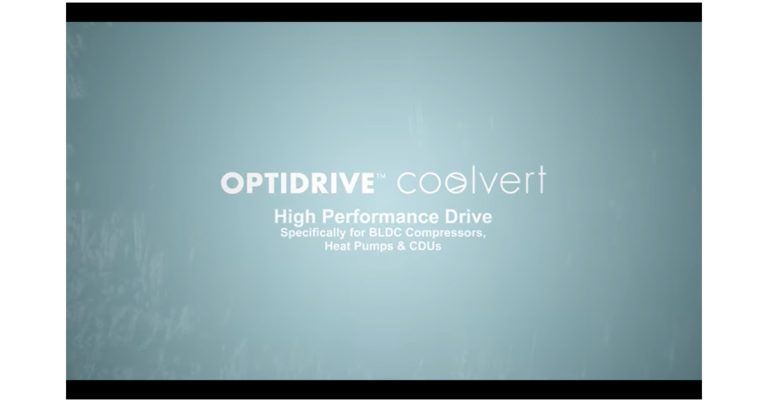Nidec-Shimpo Launches Drive Modules for AGVs and AMRs
February 8, 2023

Nidec-Shimpo Corporation has announced that is has newly added direct-current (DC), 24V modules to its product lineup of drive modules for automated guided vehicles (“AGVs”) and autonomous mobile robots (“AMRs”) currently on sale.
As demand increases for automated and labor-saving warehouses in logistics, manufacturing, and other industries, the AGV and AMR business is growing continuously, with the scale of its market forecast to grow from US$3 billion in 2021 to more than US$18 billion in 2027.
The newly launched 24V drive modules, which are additions to the lineup of existing DC, 48V products, can be used with the same voltage (DC 24V) used for many peripheral devices. At the drive sections of these new modules are the compact and low-noise reducers, which are Nidec-Shimpo’s specialty and apply the technology for helical gears, with two allowable load capacities of 250kgf and 650kgf.
Each driver of the products can control two dual-axis motors, is 60% the size of their predecessors, and thus contribute to the creation of smaller and lighter AGV & AMR units. For the interface with an upper controller, the newly launched modules have in them the CAN (Controller Area Network) communication function in addition to RS-422, another communication function used frequently for factory automation equipment.
Nidec-Shimpo stays committed to providing various business fields with high-industrial-efficiency machines based on its reducer- and continuously variable transmission-originated knowhow, to contribute to a variety of markets.
More Information
Drive Modules for AGVs and AMRs
Related Product
Nidec-Shimpo Launches a Lineup of Servo Motor VR Series Reducers for Food Machinery
As public awareness of food safety is on increase in recent years amid food poisoning, norovirus, and other incidents, safety is required for food machinery (confectionery and bakery equipment, meat processing machinery, packaging machinery, etc.) and reducers used for them.
With robots and factory automation equipment used in agitation, mixing, crushing, filling, conveying, aligning, and many other food item and drug manufacturing processes, safety is increasingly demanded for the reducers used in those processes.
To meet such market demand, the Company’s latest VR series reducers for food machinery adopt grease of Grade H1 of the NSF, a global standard for lubricant oils for food machinery (Lubricant oils of this grade are allowed to be used in places that may accidentally contact food), and the reducers can be installed in food machinery’s drive sections.




